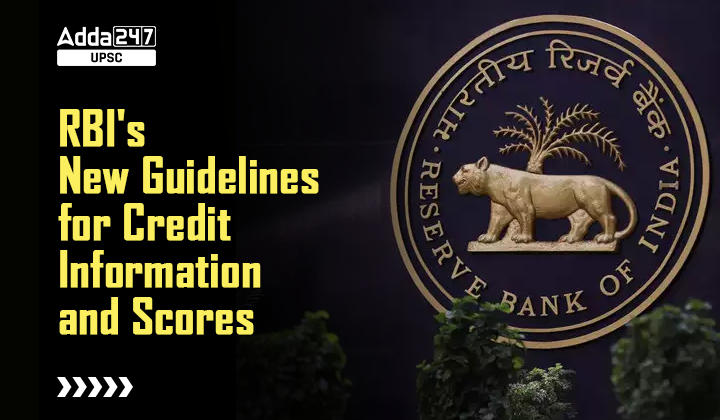Table of Contents
In a world increasingly driven by credit and financial transactions, your credit score plays a pivotal role in determining your financial fate. Whether you’re applying for a loan, a credit card, or even renting an apartment, your creditworthiness is assessed through your credit score.
In this context, the Reserve Bank of India (RBI) has introduced groundbreaking guidelines to protect consumers and ensure transparency in credit reporting. This article will delve into these guidelines, their implications, and how they empower individuals in their financial dealings.
RBI’s Directive to Credit Information Companies (CICs)
- Credit Information Companies (CICs) are the custodians of your financial history. They collect data from banks and Non-Banking Finance Companies (NBFCs) and use this information to calculate your credit score and credit rank.
- RBI’s new directive instructs CICs to alert customers when their Credit Information Report (CIR) is accessed by banks and NBFCs.
- This is a significant step towards transparency, ensuring that individuals are aware of who is reviewing their financial history.
Notification for Every Inquiry
- Under this directive, CICs are required to send SMS or email notifications to customers whenever their CIR is accessed. This serves as an important safeguard against unauthorized access or potential identity theft.
- Customers will now be promptly informed, allowing them to take appropriate actions if they notice any suspicious activity.
Notifications for Default and Days Past Due
- In addition to monitoring who accesses your CIR, the RBI’s guidelines also require banks and NBFCs to send SMS or email alerts to customers when they report defaults or Days Past Due (DPD) on existing credit.
- This is a crucial step in keeping consumers informed about their financial status and helping them avoid late payment penalties.
Timely Alerts on Defaults
By receiving notifications of defaults and DPD, customers can address their financial concerns promptly. This enables them to maintain a good credit record and minimize the adverse impact of delayed payments on their credit scores.
Effective Implementation
The RBI’s guidelines are set to come into effect within six months. This provides CICs, banks, and NBFCs with a reasonable timeframe to adapt to the new regulations and make necessary changes to their systems for compliance.
Transition Period for Compliance
- This transition period is essential to ensure that all financial institutions can seamlessly integrate the new notification system into their existing processes.
- It also allows them to train their staff and provide information to customers regarding these changes.
Credit Information Companies: What Are They?
To better understand the implications of the RBI’s directives, it’s crucial to comprehend the role of Credit Information Companies (CICs) in the Indian financial ecosystem.
The Role of CICs in Credit Scoring
- CICs are responsible for gathering, storing, and analyzing consumer and business credit information.
- They collect data from various financial institutions, including banks and NBFCs. Based on this information, CICs calculate credit scores for individuals and credit ranks for companies, helping lenders evaluate creditworthiness and past credit history.
The Significance of Credit Scores
- A customer’s credit score plays a pivotal role in determining their ability to secure credit. A high credit score indicates responsible financial behavior, making it easier to access loans and credit cards at attractive interest rates.
- Conversely, a low credit score, often due to defaults on previous loans, can make it challenging to obtain credit.
Accessing Your Credit Score
In addition to the RBI’s directives regarding notifications, it’s important to know how you can access your credit score.
Obtaining Your Credit Score
- Typically, you can obtain your credit score from a CIC for a fee. However, the RBI has introduced a provision for consumers to access a “Free Full Credit Report (FFCR)” once every calendar year.
- This report includes your credit score and credit history, and CICs must prominently display the link to this report on their websites.
Correcting Incorrect Data
Mistakes in your credit report can have a detrimental impact on your financial life. It’s essential to know how to rectify inaccuracies.
Rectifying Errors in Your Credit Report
- The RBI has established a process for consumers to apply for the correction of data in their Credit Information Report (CIR). Banks and NBFCs are now required to inform customers of the reasons for rejecting their requests for data correction, if any.
- This ensures that consumers have clarity about the issues in their CIR and can take necessary steps to rectify them.
Conclusion
The Reserve Bank of India’s new guidelines for Credit Information Companies represent a significant leap towards transparency and consumer empowerment in the financial sector.
With notifications for every CIR access and alerts for defaults and DPD, customers are now better equipped to manage their financial health and protect their credit scores.
The provision for a free annual credit report further empowers individuals to monitor their credit history. These initiatives are poised to reshape the credit landscape in India, fostering responsible financial behavior and ensuring that consumers are well-informed and in control of their credit profiles.



 TSPSC Group 1 Question Paper 2024, Downl...
TSPSC Group 1 Question Paper 2024, Downl...
 TSPSC Group 1 Answer key 2024 Out, Downl...
TSPSC Group 1 Answer key 2024 Out, Downl...
 UPSC Prelims 2024 Question Paper, Downlo...
UPSC Prelims 2024 Question Paper, Downlo...
